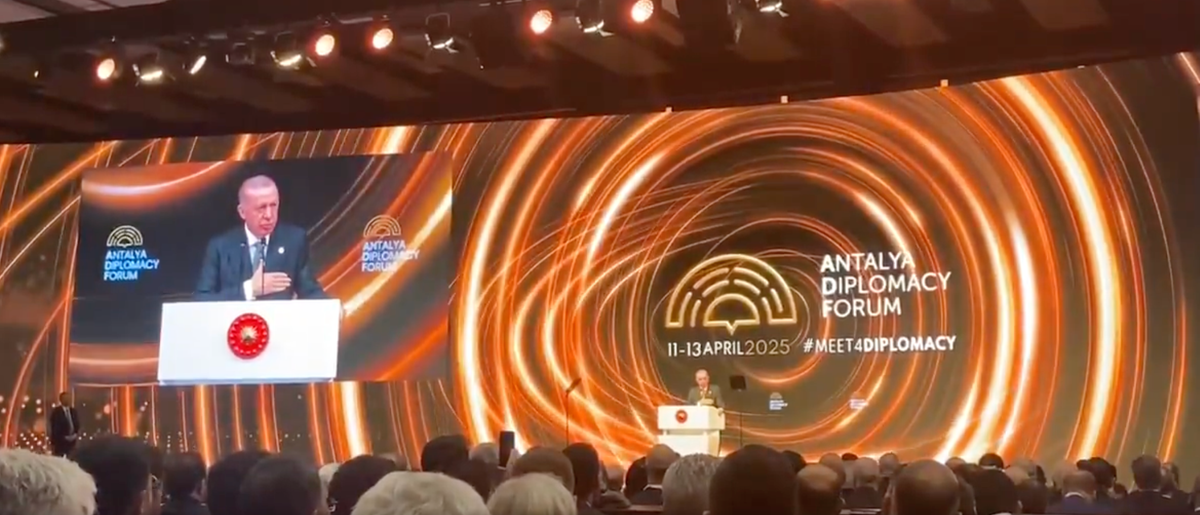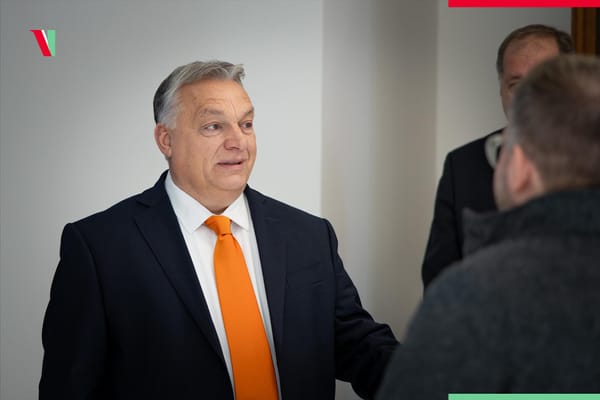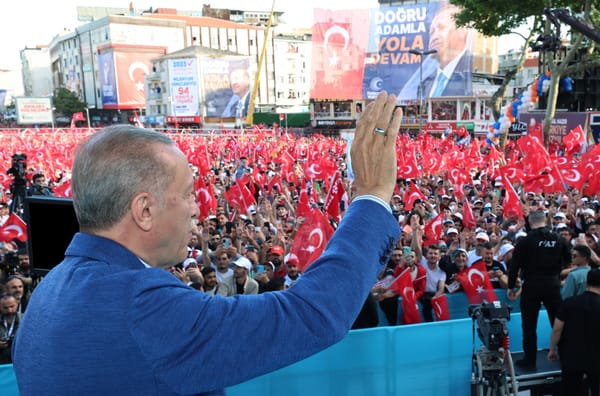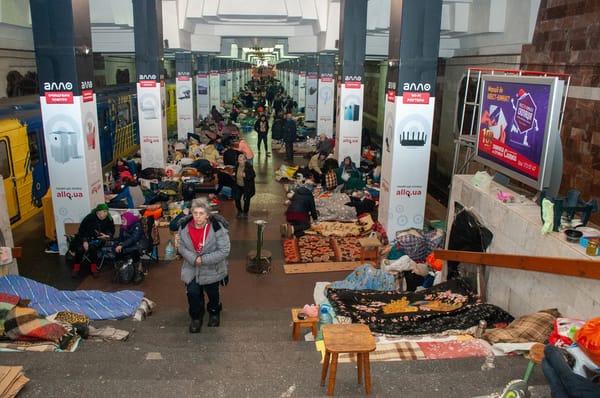
CEE leaders weigh in on security, expansion, energy at Antalya forum
Attendees from Central and Eastern Europe (CEE) nations including Bulgaria, Hungary, Romania, Poland, Czechia, Slovakia, Moldova and others discussed policy priorities at the Antalya Diplomacy Forum in south west Turkey on 11-13 April.
The forum's theme "Reclaiming Diplomacy in a Fragmented World" set the tone for discussions on security, EU integration, energy, and regional cooperation. The event, being held for the fourth year and widely seen as a precursor to the European Council Summit in June, gathered representatives from over 140 countries.
CEE officials voiced concerns and strategies on issues around regional stability. Black Sea security, EU enlargement fatigue, energy corridors and Turkey's regional diplomacy emerged as focal points. "The very crises we face make forums like this more necessary than ever," Moldovan Prime Minister Dorin Recean said.
Black Sea security: regional priority
Security in the Black Sea region featured heavily, given Russia's ongoing war on Ukraine and its spillover effects. A panel entitled "Black Sea security from the perspective of littoral allies," the foreign ministers of Romania and Bulgaria and Turkey's deputy foreign minister emphasised the Black Sea's strategic importance. The participants stressed the need for any peace deal to guarantee Ukraine's territorial integrity and prevent further hostilities.
Bulgarian Foreign Minister Georg Georgiev said securing the Black Sea benefits Europe: "Investment in the security of the Black Sea region is an investment in the security of the Euro-Atlantic area", and called for closer Western coordination. "In this complex environment, what is most urgently needed is closer coordination and cooperation between NATO and the EU." He highlighted the Black Sea as a crossroads for security, trade and energy, warning that deterioration has a direct and multi-layered negative impact on global stability.
Georgiev advocated an EU strategy for the region. "We need an integrated, multi-dimensional EU strategy for the Black Sea region that reflects the current realities while offering a vision for the future." He called for a stronger NATO presence and expressed hope for a swift ceasefire in Ukraine based on international law.
Romanian Foreign Minister Emil Hurezeanu praised Turkey's role in maintaining regional stability. CEE participants stressed the importance of keeping the Black Sea open to commercial shipping, noting hybrid threats such as sea mines and cyber attacks. Officials highlighted existing trilateral cooperation between Romania, Bulgaria and Turkey on mine-clearing and maritime security.
CEE representatives said Black Sea stability is indivisible from European security, and praised Turkey's contributions, from its enforcement of the Montreux Convention to its diplomatic initiatives. Only a multilateral, rules-based approach can secure the Black Sea region, they added.
Confronting EU enlargement fatigue
The future of EU enlargement was also on the agenda, amid concerns of "enlargement fatigue" in the EU. Leaders from aspirant EU members used the forum to reaffirm their commitment.
Moldovan Prime Minister Dorin Recean underlined EU integration as a strategic objective. "Moldova is a peaceful country, aspiring to become an EU member by 2030 and open to investment and advantageous cooperation. We are pleased to see that more Europeans understand that an expanded Europe is safer, more peaceful and more prosperous."
Recean added, "Moldova endures. We are a frontline democracy defending European values. Supporting Moldova means strengthening the security of the entire continent."
Recean's remarks struck a chord with officials from EU candidate countries in the Western Balkans. Montenegrin President Jakov Milatovic reiterated his country's EU target of 2028 and praised the deepening partnership between the Balkans and Turkey: "Today, we are strengthening links between Balkan nations and Turkey based on mutual respect and shared values."
Diplomats from Poland, Slovakia and Czechia argued that enlargement must continue, adding that they view integration of the Western Balkans, Ukraine and Moldova as an investment in stability. Participants pointed to recent steps such as the EU Growth Plan for the Western Balkans but acknowledged obstacles like slow reforms and EU institutional limits.
Building energy corridors, connectivity
Energy security was another key theme, as CEE countries explore new corridors to reduce dependence on Russian supplies and boost regional connectivity. The forum provided opportunities to discuss pipeline projects, gas interconnectors and electricity networks linking Europe with the Caspian, Central Asia and the Middle East via Turkey.
Turkish President Recep Tayyip Erdogan held bilateral talks with CEE counterparts, accompanied by Turkish Energy Minister Alparslan Bayraktar, who said energy cooperation and joint projects to strengthen regional supply security were high on the agenda. In meetings with Bulgarian Prime Minister Rosen Zhelyazkov, the two sides focused on strategic partnerships to expand European energy reach.
The "Solidarity Ring" gas initiative, aimed at increasing flows from the Caspian region to Eastern Europe via Turkey and Bulgaria, was also on the agenda. Romania, Bulgaria and Turkey each have gas reserves in the Black Sea, and coordinated exploitation is seen as crucial for reducing European dependency on a single supplier.
Hungarian-Turkish dialogue also emphasised energy interconnection. President Erdogan and Hungarian Prime Minister Viktor Orban discussed progress on linking energy markets and cooperating on diversification efforts. Hungary is looking to access gas from Azerbaijan via Turkey through the Southern Gas Corridor.
CEE ministers also discussed electricity interconnectors and renewables. Projects to transmit green energy from the Caucasus and Black Sea offshore wind farms to Central Europe were mentioned. The Middle Corridor was cited as a potential route for energy transit as well as trade. They said by cooperating on infrastructure, they can insulate themselves from future shocks, as energy corridors become arteries of European security.
Turkish regional diplomacy, CEE perspectives
CEE officials welcomed Turkey's engagement as complementary to EU and NATO efforts. Montegrin President Milatovic said cooperation with Turkey is important for all the Balkans, and Serbian Foreign Minister Marko Duric called for a ten-year moratorium on political and ethnic disputes.
Duric tweeted: "Being a country with eight neighbours on its immediate borders, regional policy represents the backbone of Serbia’s foreign policy, and our country’s success depends on the quality of these relations.
"In the times ahead, we will strive to improve relationships in the region and invest heavily in resolving legacy issues from the 1990s. I’m under no illusion that this is an easy process, but if we want to sustain the high growth rate our country has achieved in the past couple of years, we will have to secure a stable and friendly environment."
Bulgarian Prime Minister Rosen Zhelyazkov claimed that Bulgaria and Turkey have developed a model cooperative relationship that safeguards national and European external borders. Romanian Foreign Minister Hurezeanu praised Turkey's role in the grain initiative and broader diplomacy.
Orban wrote on X that "It was a pleasure to meet Bosnia and Herzegovina President Zeljka Cvijanovic in Antalya. The European Union's actions towards the Western Balkans, including undermining democratically elected leaders, are irresponsible and dangerous. Such tactics only fuel instability in the region."
The Hungarian premier also posted, "It was a pleasure to have a discussion with Prime Minister Kobakhidze of Georgia in Antalya today. Hungary and Georgia share a strong strategic partnership, grounded in our shared cultural and Christian heritage. Our cooperation on energy diversification and regional stability continues to grow. We value our friendship with Georgia and remain dedicated to strengthening our collaboration."



